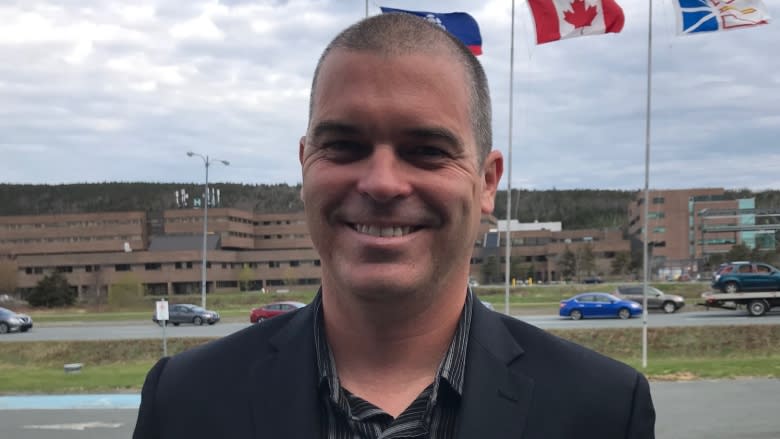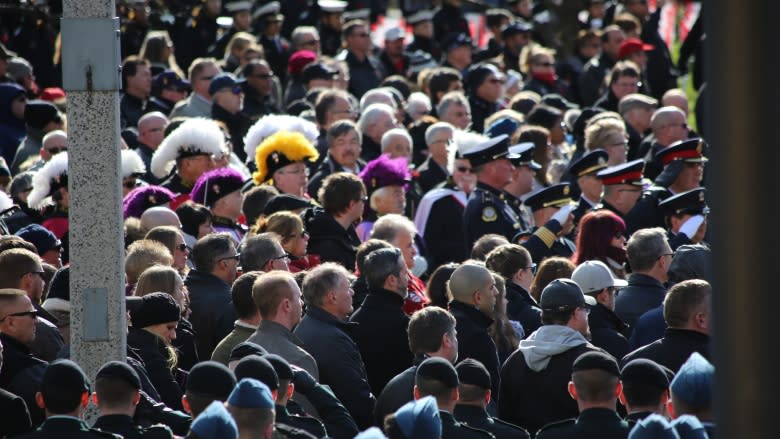Former soldier hopes veterans walk will lead to talk
A former soldier is organizing an eight-city event that he hopes will get veterans talking to each other and to civilians.
Aaron Bedard, who suffered a brain injury during his first tour in Afghanistan and dealt with PTSD and other issues when he got home, came up with the idea Canadian Walk for Veterans.
Bedard said younger veterans struggle with Remembrance Day ceremonies because they bring back painful memories of time spent in overseas conflict zones.
"It's very emotional, and it's not a good connection for the general public to have a chance to talk to veterans. They often march in, do a moment of silence and go off together and reminisce," Bedard told the St. John's Morning Show.
He felt a springtime walk would be a better venue for conversation.
"One that's lighthearted and gives the general public an opportunity to walk with veterans and talk to them."
Bedard said the walk on Sunday, June 3 will be held in eight cities this year, from St. John's to Victoria, and he hopes to grow it into a national event.
He's putting out a call to get more participants, with a goal of 250 per city. Right now he has only 50 for the walk around Quidi Vidi Lake in St. John's.
Raising money to help transition
The walk is also a fundraiser to cover the organizing costs. If it succeeds in years to come Bedard hopes to create an organization that helps veterans transition back into civilian life.
He said talking with people about their experiences can be helpful.
"They're often very nervous coming back from transition out of the forces if they've had a tough go and have some mental health challenges," he said. "They become very shy about the general public and see themselves separate from society."
Bedard is part of a group of disabled veterans fighting through the Supreme Court of Canada for better pensions for wounded soldiers.
He is one of the principals behind the Equitas class-action lawsuit, which alleges soldiers who served in Afghanistan are being discriminated against.
As a combat engineer in Afghanistan, Bedard was injured when he drive over anti-tank mines. He was also ambushed and hit with improvised explosive devices and rocket propelled grenades.
He said he tried to hide his injury for a year, and had substance abuse and mental health issues when he returned back to Canada.
"I hid it all for a year after that and when I got pushed out of the unit I developed PTSD and went through a really hard transition," he said. "But it led to my advocacy work and it led to this."



